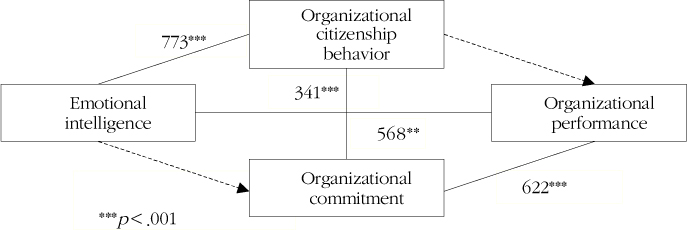1Graduate School, Department of Nursing, Sahmyook University, Korea.
2Department of Nursing, Sahmyook University, Korea.
Copyright © 2014 Korean Academy of Nursing Administration
This is an open access article distributed under the terms of the Creative Commons Attribution Non-Commercial License (http://creativecommons.org/licenses/by-nc/3.0/), which permits unrestricted non-commercial use, distribution, and reproduction in any medium, provided the original work is properly cited.


Means and Correlations between the Variables (N=449)
Goodness-of-Fit Index of Structural Equation Models
Estimates of Modified Model's Parameters
RW=Regression weight
Direct and Indirect Effects and Total Effects of Variables
RW=Regression weight